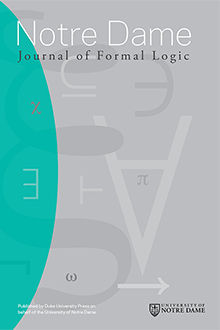Abstract
This paper considers two reasons that might support Russell’s (and Whitehead’s) choice of a ramified-type theory over a simple-type theory. The first reason is the existence of purported paradoxes that can be formulated in any simple-type language, including an argument that Russell considered in 1903. These arguments depend on certain converse-compositional principles. When we take account of Russell’s doctrine that a propositional function is not a constituent of its values, these principles turn out to be too implausible to make these arguments troubling. The second reason is conditional on a substitutional interpretation of quantification over types other than that of individuals. This reason stands up to investigation: a simple-type language will not sustain such an interpretation, but a ramified-type language will. And there is evidence that Russell was tacitly inclined towards such an interpretation. A strong construal of that interpretation opens a way to make sense of Russell’s simultaneous repudiation of propositions and his willingness to quantify over them. But that way runs into trouble with Russell’s commitment to the finitude of human understanding.
Citation
Harold T. Hodes. "Why Ramify?." Notre Dame J. Formal Logic 56 (2) 379 - 415, 2015. https://doi.org/10.1215/00294527-2864352
Information





